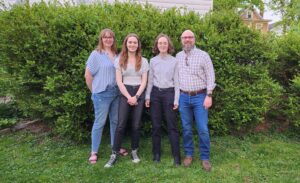Some notes and observations from last week’s Quirk’s NYC Conference
Last week’s Quirk’s Conference serves as a reminder that we’re in a vibrant and ever-evolving industry that combines new techniques and technology with time-tested techniques, some of which have been around as long as our profession has been in existence.
I was also reminded how valuable in-person opportunities are for our profession to build one of the most important aspects of our field: personal relationships!
Here are 8 Key Themes we saw over the course of the conference in no particular order:
Inclusivity:
Ensuring the voice of our diverse population. What exactly is a GP study today?
Diversity, equity and inclusion (DEI) is more than a ‘buzz word.’ It’s a must-have for business, and society. It is no different in the market insights industry.
Even basic demographic information, such as gender and race should be updated to reflect today’s world. This should be focused on screening as well as back-end classification. The key is to understand how people describe themselves.
Sustainability:
Consumers are demanding it from brands and may ‘uncouple’ with their preferred brands if sustainability is only talked about and not acted upon.
How do you communicate sustainability to stakeholders? Understand what a specific company’s corporate sustainability is, and then translate it to consumers in a meaningful way. Marketers/Creatives need to be the translators between the company and consumers.
Brand Purpose:
People expect brands to use their platform to have a voice on social issues (which can alienate some consumers). While companies may not be expected to solve the world’s problems, they need to be active, and walk the walk. Not picking a side can label your company as one who doesn’t care.
For instance, a car can serve as a respite for some people. A place to decompress before entering their home. Brands that can deliver serenity and a feeling of being recharged through their products are celebrated, especially in the times we are living in. Brands that can provide this and other impactful and current benefits will thrive.
Brands are multi-dimensional. Brands can be both functional and cultural. By weaving the two together they can become more personalized to various stakeholders.
What to do with open-ended questions:
Many presenters talked about using text analytics, but nobody seems to have developed the secret to unlocking the insights that can exist in well-crafted open-ended questions and their analysis.
Brand messaging:
Social media is unforgiving. When crafting a message, you need to get it right the first time. The risk is too high to make a mistake, because loyalty can be hard to win back.
Emergence and decline of a specific type of influencers:
Social media has created some wealthy and famous stars over the last few years, but sincerity is what people seem to be gravitating toward, pushing some influencers aside for people who aren’t just billboards.
ResTech:
The intersection of market research and technology has been evolving since the 90s, but nothing out there seems to meet everyone’s needs completely. Like it or not, humans are still needed to make sense of the research. We know the right business questions to ask as well as the best, most actionable answers to be found from well-designed research.
Online Sample Fraud:
This session provided a window into the world of fraud in the global online sample world. Let’s just say it is finally emerging as something that must be dealt with in our industry.
Takeaways
At MAi, we strive to address these topics, and others in our industry, to drive better research design and analysis to guide clients. Some examples include:
We are currently exploring and evaluating how to update our standard demo questions to be more inclusive of all groups of people. More to come.
A unique approach we are developing for designing and analyzing open ends with our Text ScienceTM will help reveal the hidden, deeper meaning in responses supplying our clients with further insights.
MAi just published a blog on Influencer Marketing, an area we are delving into.
Lastly, we have stringent practices in place to ensure data quality, beyond what is expected in the industry. We have also developed, and are currently validating, an analytic approach using artificial intelligence and “Human Experience” to identify and model good/qualified respondents as a way to proactively negate these issues.
Come find out more about our firm at www.mairesearch.com











